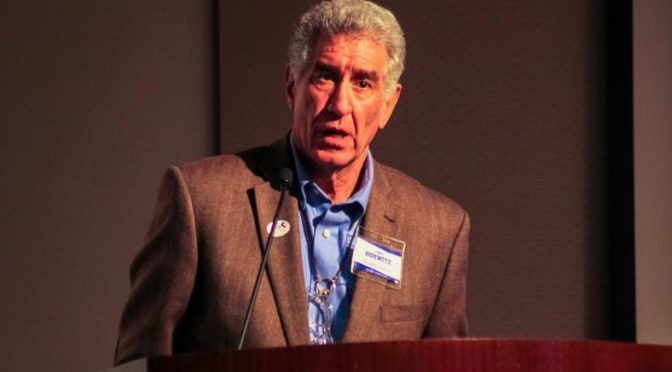In the Fifteenth installment of the 2018 Texas Leftist Candidate Questionnaire, we hear from James Horwitz, candidate for Harris County Probate Court- Number 4.
Please note: Responses have been received directly from the candidate, and have been posted ver batim from the email received. This is done out of fairness to all candidates. Publishing these responses does not constitute an endorsement, but will be considered during the endorsement process.
TL: What is your name, as it will appear on the ballot?
JH: James Horwitz
TL: Are you a current or former elected official? If so what office(s)?
JH: No. I was the Democratic nominee for this Bench in 2014, and ran for the Houston City Council in 2013.
TL: As a political candidate, you clearly care about what happens in certain levels of government. In your own words, why is government important?
JH: Beneath the rotunda of City Hall is a seal. Its caption reads “Government Protects the People.” The adage is twice as true for the judiciary. The probate courts, the judgeship for which I am a candidate, doubles as both a court of law and a court of equity. What this means is that adjudication of the black-letter law is only one component of the job. Doing what is right is another.
TL: If elected, name your top 3 priorities you hope to accomplish for the upcoming judicial term. Describe how you plan to accomplish them.
JH: (1) The most important priority for my Court would be to expand community outreach. It is time for the people to say enough, and demand that the judiciary that works for them actually do so. I would want my Court to be an active member of the community in educating and informing the public about wills, estates, trusts and guardianships, among other functions of the probate courts.
For example, you can handwrite your own will, and in doing so skip most all of the formalities that often cause typewritten wills to be voided in court. Another example is that, if you don’t write a will, the state legislature essentially writes one for you through a process called “intestacy.” The general public basically knows the rudiments of criminal or family law, but often does not for probate law. I want that to end, with my Court being on the vanguard of the change.
(2) I will insist upon more mediations to occur in my Court before trial.
Probate court is often the setting of visceral family disputes, where longstanding feuds rearise. Litigants sometimes lose track of their best interests, and disputes over even modest estates can be tied up for years in court, with the attorneys often taking a sizable chunk of everyone’s inheritances. I want to insist upon more mediations, the way the family courts have operated for years, before trials, so more cases can have happier endings.
(3) I will interpret the law.
This is a phrase that may sound a little trite, and it’s because it is a favorite of Republican judges. I recall being interviewed by the Houston Chronicle editorial board in 2014, and discussing how the law always changes, and a good judge needs the alacrity to respond to changes or developments in the law. In 2014, I discussed how a federal court may one day soon legalize same-sex marriage in Texas. (In fact, the Supreme Court did just that less than a year later.) I discussed the need to react to updates in the law by openly and fairly interpreting it.
I suggested that a good judge would examine the prospect, then, of common-law marriages being found for same-sex couples. Whether the decedent in probate court left a surviving spouse is often a major question. Many Republican judges, the ones who talk about interpreting the law, now make political statements by ending their longstanding occupational commitment to officiating marriages. I don’t see that as following the law. I see my suggestion, reacting to the developments and updates that may arise, as following the law more faithfully.
TL: What makes you the best candidate for this office?
JH: I have practiced law for more than 40 years. I have also practiced any and every different type of law under the sun, with the regrettable exception of arguing before the U.S. Supreme Court.
I have practiced law longer than my primary opponent has been alive. He solely does probate law, and claims that he has more active cases currently before the probate court.
But as I explained, much of the probate courts is administrative. Probating most wills is very straightforward. I have no doubt that both my opponent and I would be able to capably do such tasks. The probate courts, though, are also courts of equity, or doing the right thing. And in such cases, there simply is no substitute for the experience, wisdom and compassion that accompanies practicing the law for more than 40 years.
TL: When not on the campaign trail, how do you like to spend your free time?
JH: I am very lucky to have a remarkable family with whom I can spend as much time as I can. My wife Deborah, sons Geoffrey and Noah, daughter-in-law Adele, nephews Jamie and Daniel, and standard poodles Tilly and Sadie brighten my days.
Thanks to Mr. Horwitz for the responses.
Texas Primary Election Day is Tuesday March 6th, and Early Voting begins February 20th. For the Primary, you must register to vote no later than February 5th (if you’re unsure of your voting status, here’s where you can check your registration). Early voting procedures can differ depending on your county, but here are helpful links to some: Harris County, Fort Bend County, Brazoria County, Montgomery County, and Galveston County.
For other areas, visit the Texas Secretary of State’s Elections Page for your county information.
(if you like this Texas Leftist post, please consider a donation! Help us encourage Progressive, common sense ideals in the Lone Star State!!)
